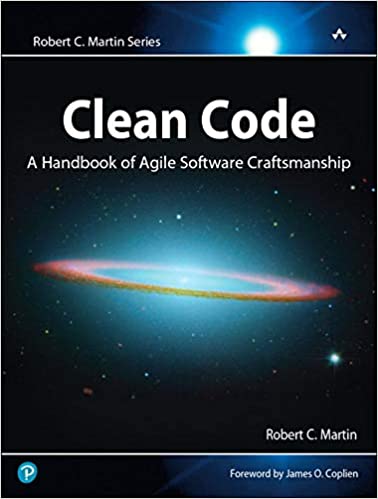

Office Hours: placeholder for mattsOfficeHours.txt See the Syllabus link in Canvas for the Zoom link. Feel freee to drop by during my non-office hours, but in that case I might not be able to see you, if I am too busy. The best way to contact me is by e-mail.
Prerequisite: COSC 211 and 231.
Textbooks:


Course Summary: Overview of software engineering as a discipline, and its application to deriving solutions to novel problems. Introduction to software life-cycle models, phases of the waterfall and agile development processes, version control, testing, UML, basic HCI, and project management. Students will complete projects in which they design and implement a software solution using software engineering techniques. There will homework and lab assignments, as well as a midterm and final examination. Several of the projects are group oriented. Students must be able to communicate with their teammates regularly via a mechanism acceptable to the team (e.g. Zoom, Discord, Skype, etc.)
Hybrid Modality: This course meets only three times. The remainder of the course is online, but asynchronous. You are expected to read/view all material posted to Canvas as well as completing assigned readings in the textbook. The quizzes and exams may cover material that is not discussed in class, but only covered via Canvas and the textbook.
Student Learning Outcomes:
The dates below are tentative. Actual due dates are always and exclusively found via Canvas. Beware due dates from before May 2025. If you see a due date before the Summer '25 semester, I have not yet assigned that work!!! The assignment may well change before I give it out (or I might not make the assignment at all).
| Date | Topics |
| 6/26 | Ch 1. Introduction to software engineering, Software Development Processes, installing Cygwin or bash on Windows |
| 6/26 | Ch. 2, software processes. Using bash shell
|
| 6/26 | Code repositories and version control. Intro to Git and Github. |
| 7/3 | Collaboration via Git, workflows
|
| 7/3 | Collaboration via Git and IDE's, Using an API, Group Project
|
7/10
|
Unit Testing, JUnit. Compiling and running Java from command line. Validation and verification strategies. Build to the Test.
|
| 7/10 | Ch 3 Introduction to Agile Development Software Engineering Methodologies (scrums, code reviews, burndown charts, pair development, etc.) |
| Placeholder |
|
| Week of 7/14 |
Midterm Exam, Ch 4 Requirements Engineering, Code coverage (EclEmma) Collaboration tools (e.g. Kanban tables, Trello, etc.). |
| Week of 7/14 |
Ch 5 System Modeling
State machines, system diagrams. Final Project Assignment |
| Week of 7/21 |
Techniques for defining software designs. Presented with a case study that presents a problem to be solved, develop the design of a software solution. |
| Week of 7/21 | Ch 6 Software Architecture Design, AI-supported coding (Github Copilot)
|
| Week of 7/28 | Ch 7 Project Development, Project Management (make, Ant, Maven, etc.). |
| Week of 7/28 | Ch 8 Testing, System testing, End-to-end testing. |
| Week of 8/4 |
Testing, Design patterns (factories, MVC, etc.), Project Demos |
| THURSDAY 8/7 | Final Exam, sometime between 9am and 11pm. |
Tardiness Policy: Programming and other homework assignments assigned overnight will be due at the beginning of class. After that, assignments will be accepted through the start of the next scheduled class, but will suffer a full grade penalty. E.g., if a late programming assignment is worthy of an 'A', I will mark it a 'B'. Assignments more than one class late will not be accepted, and will receive a grade of 'F'. Missed assignments, and exams shall only be excused by a doctor's written note, verifying that the student was medically indisposed to participate on that day.
Attendance Policy: There will be a lot of group work in this course and a lot of lab work. Consequently you should strive to attend class regularly. When we are not meeting you should make sure to schedule regular meetings with your teammates via Discord, etc. Your teammates will not be happy if you miss a class or meeting at which you were expected to work with them.
Missed assignments shall only be excused by a doctor's written note, verifying that the student was medically indisposed to attend class that day. Study after study has shown that regular attendance is strongly correlated with better grades. I urge you to attend class as often as possible!! Keep in mind, too, that class participation is part of the grading methodology.
Grading of Programs: Programs shall be submitted either to the Canvas online "dropbox" corresponding to each assignment or via Github Classroom. Submissions to Canvas will consist of a zip file, not of the source code or of an Eclipse project directory. The zip file should also contain a file named "README.txt", a simple text file, containing any directions I might need to run your program, as well as a description of any known bugs in the program. Github Classroom submissions will consist of the same content, but not as a zip file, as the content will be accessible via a Github repository. You can use any flavor of zip file, not RAR, please.
Grading of programming assignments will reflect three factors, weighted as shown:
All due dates are stipulated on Canvas. Students should view Canvas regularly for announcements regarding programming assignments–including changes to due date, readings, etc. I update Canvas frequently.
Beware of old due dates in Canvas: if a due date for an assignment is not during the current semester, I have not yet assigned, nor may I do so! In addition, if I do assign that work, it may be altered from what is written at the beginning of the semester.
(This section is included in the syllabus in the event that we have to switch to online mode during the semester.) I may record course lectures to be made available to other students in this course. As part of your participation in this course, you may be recorded. If you do not wish to be recorded, please contact me during the first week of class to discuss alternative arrangements.
Students may not record or distribute any class activity without written permission from me, except as necessary as part of approved accommodations for students with disabilities. Students with such accommodations must inform me before recording any class activity. Any approved recordings may only be used for the student’s own private use.
You are strongly encouraged to turn on your camera during Zoom classes so that I can better interact with you and the rest of the class. It is so much more like an in-person class to be able to see your classmates! If you are not going to have your camera activated, you are required to set up your Zoom profile so that, when your camera is inactive, Zoom displays your name and a photo of yourself. To do this, fire up Zoom and see the Profile tab in Settings. Part of your grade is class participation. Being visible during class is an aspect of class participation.
If we must hold exams online, they will be conducted using the Respondus Lockdown Browser. You will be required to use a video camera for this. The system will record video as you take exams and track the orientation of your face to the camera as a way to preclude students from referencing notes during exams. The system also locks out other applications from using your screen during the exam. If you do not have a camera, please reach out to me well before the first exam/test. There is a practice test in Canvas that you should use to double-check that you are prepared to take the exam.
It is my goal that this class be an accessible and welcoming experience for all students, including those with disabilities that may impact their learning in this class. If anyone believes they may have trouble participating or effectively demonstrating learning in this course, please meet with me (with or without a Disability Resource Center (DRC) accommodation letter) to discuss reasonable options or adjustments. During our discussion, I may suggest the possibility/necessity of your contacting the DRC (240 Student Center; 734-487-2470; swd_office@emich.edu) to talk about academic accommodations. You are welcome to talk to me at any point in the semester about such issues, but it is always best if we can talk at least one week prior to the need for any modifications.
University Writing Center: The University Writing Center (UWC) offers writing support to all undergraduate and graduate students. In doing so, we value the diversity of our campus and honor all students and the languages they bring with them to the university.
Holman Success Center: Provides Academic Support through a variety of virtual and in-person services.
University Library: Research support is available to all students, 24/7. This includes getting started with research, identifying sources to search, developing search strategies, evaluating resources, and more. See https://www.emich.edu/library/help/ask.php for all of the ways in which you can get help with research. Some University Library services have changed, and may continue to change, in response to the pandemic. Please check for current information at https://www.emich.edu/library/news/covid.php
Student and Exchange Visitor Statement (SEVIS): For international students, the Student Exchange Visitor Information System (SEVIS) requires F and J students to report numerous items to the Office of International Students & Scholars (OISS)
Title IX: Title IX of the Education Amendments of 1972 prohibits discrimination on the basis of sex under any education program or activity receiving federal financial aid. Sexual assault and sexual harassment is a form of sex discrimination prohibited by Title IX. What you need to know about Title IX
Students are required to attend to the University policy on academic dishonesty outlined in Sections V and VIII (Provisions Governing Acts of Academic Dishonesty) of EMU's Code of Community Responsibility (see the full policy at https://www.emich.edu/policies/index.php?p=8.1). In addition, collaboration among students in solving programming and homework assignments is forbidden, unless specifically allowed. If I receive programs or homework assignments that are substantially equivalent, or which are not the original work of the student submitting the material, I will not hesitate to punish all involved parties to the fullest extent, up to and including assignment of a failing grade for the course, and referral to the Office of Judicial Student Services for possible punitive action at the University level, which may include expulsion from the University. In addition, the University and the Computer Science Department maintain policies regarding proper behavior on its computer systems. Failure to adhere to these policies can result in loss of computer privileges, and possible legal action.
The Computer Science Department maintains a plagiarism policy, which can be found on the department's web site.
In addition to the articulated course-specific policies and expectations, students are responsible for understanding all applicable university guidelines, policies, and procedures. The EMU Student Handbook is the primary resource provided to students to ensure that they have access to all university policies, support resources, and student's rights and responsibilities. Changes may be made to the EMU Student Handbook whenever necessary, and shall be effective immediately, and/or as of the date on which a policy is formally adopted, and/or the date specified in the amendment. Electing not to access the link provided below does not absolve a student of responsibility. For questions about any university policy, procedure, practice, or resource, please contact the Office of the Ombuds: 248 Student Center, 734.487.0074, emu_ombuds@emich.edu, or visit the website at www.emich.edu/ombuds. CLICK HERE to access the University Course Policies